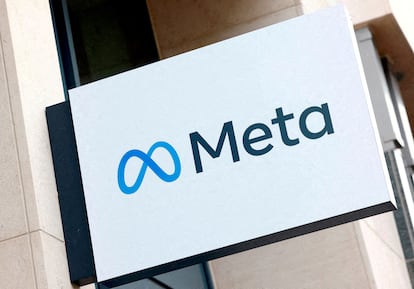Meta makes public its ChatGPT rival, Llama
CEO Mark Zuckerberg said it is partnering with Microsoft to introduce the next generation of its AI large language model and making the technology known as Llama 2 free for research and commercial use

Facebook parent company Meta Platforms has built an artificial intelligence system that rivals the likes of ChatGPT and Google’s Bard, but it’s taking a different approach: releasing it for free. Meta CEO Mark Zuckerberg said Tuesday that the company is partnering with Microsoft to introduce the next generation of its AI large language model and making the technology, known as Llama 2, free for research and commercial use.
Much like tech peers Google and Microsoft, the social media company has long had a big research team of computer scientists devoted to advancing AI technology. But it’s been overshadowed as the release of ChatGPT sparked a rush to profit off of “generative AI” tools that can create new prose, images and other media.
Meta has also tried to distinguish itself by being more open than some of its Big Tech rivals about offering a peek at the data and code it uses to build AI systems. It has argued that such openness makes it easier for outside researchers to help identify and mitigate the bias and toxicity that AI systems pick up by ingesting how real people write and communicate.
“Open source drives innovation because it enables many more developers to build with new technology,” Zuckerberg said in a Facebook post Tuesday. “It also improves safety and security because when software is open, more people can scrutinize it to identify and fix potential issues. I believe it would unlock more progress if the ecosystem were more open, which is why we’re open sourcing Llama 2.”
Zuckerberg pointed to Meta’s history of open-sourcing its artificial intelligence work, such as with its development of the widely used machine-learning framework PyTorch.
But the research paper introducing the new model reflects less openness than Meta has shown previously in its work to build models that require ingesting large troves of digitized writings such as books, news articles and social media feeds.
It says the latest model was trained on “a new mix of data from publicly available sources, which does not include data from Meta’s products or services,” but does not specify what data was used. It does say that Meta removed data from websites known to contain a “high volume of personal information about private individuals.”
Zuckerberg said people can download its new AI models directly or through a partnership that makes them available on Microsoft’s cloud platform Azure “along with Microsoft’s safety and content tools.”
The financial terms of that partnership were not disclosed.
While Microsoft is described by Meta as a “preferred” partner, Meta said the models will also be available through Amazon Web Services, which is Microsoft’s main cloud rival, as well as AI startup Hugging Face and others.
Microsoft is also a major funder and partner of OpenAI, the maker of ChatGPT. Neither ChatGPT nor similar offerings from Microsoft or Google are open source.
Microsoft and Meta also revealed the new AI partnership at Microsoft’s annual event for business customers on Tuesday. Microsoft said in a separate statement that the two companies “share a commitment to democratizing AI and its benefits, and we are excited that Meta is taking an open approach.” Meta already is a customer of Microsoft’s Azure cloud computing platform.
Sign up for our weekly newsletter to get more English-language news coverage from EL PAÍS USA Edition
Tu suscripción se está usando en otro dispositivo
¿Quieres añadir otro usuario a tu suscripción?
Si continúas leyendo en este dispositivo, no se podrá leer en el otro.
FlechaTu suscripción se está usando en otro dispositivo y solo puedes acceder a EL PAÍS desde un dispositivo a la vez.
Si quieres compartir tu cuenta, cambia tu suscripción a la modalidad Premium, así podrás añadir otro usuario. Cada uno accederá con su propia cuenta de email, lo que os permitirá personalizar vuestra experiencia en EL PAÍS.
¿Tienes una suscripción de empresa? Accede aquí para contratar más cuentas.
En el caso de no saber quién está usando tu cuenta, te recomendamos cambiar tu contraseña aquí.
Si decides continuar compartiendo tu cuenta, este mensaje se mostrará en tu dispositivo y en el de la otra persona que está usando tu cuenta de forma indefinida, afectando a tu experiencia de lectura. Puedes consultar aquí los términos y condiciones de la suscripción digital.








































